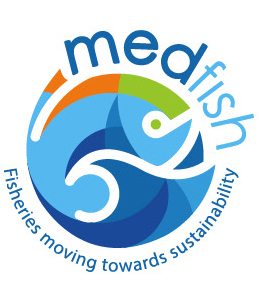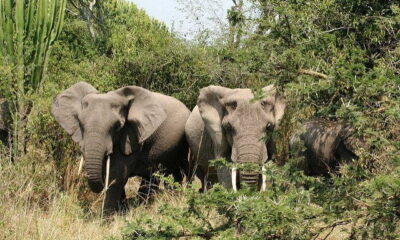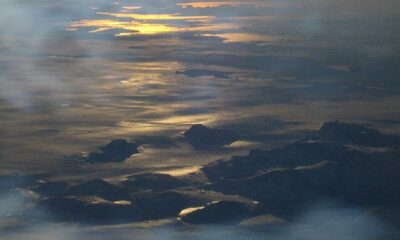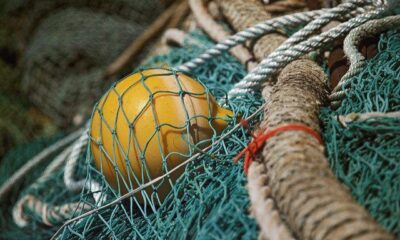

Energy
WWF and MSC to Map Impacts of Fishing in the Mediterranean
Inspired by a successful UK fisheries project, WWF and the Marine Stewardship Council (MSC) have today launched a project that will make Mediterranean fishing more sustainable for the future.
Project Medfish will map 100 small scale fisheries in France and Spain to assess their sustainability, before guiding them towards improvements that will help to protect both the environment, and the future of Mediterranean fishing communities. WWF and the MSC will also work with retailers and processors to increase demand for sustainable Mediterranean seafood.
The project will take a similar approach to the UK’s Project Inshore, which brought together retailers, suppliers, NGOs and the fishing industry, to assess the state of readiness of hundreds of England’s small coastal fisheries to enter the MSC programme, and provide them with sustainability roadmaps.
Importance of fishing in the Mediterranean
Well known as an iconic European holiday destination, the Mediterranean also supports a thriving fishing community that is made up of thousands of small scale fishing boats, which catch a wide range of species.
The livelihoods of 8,300 fishermen in Spain and 2,300 in France depend on the industry, but limited access to finance and scientific data often prevent their fisheries from becoming more sustainable. According to the little data available, 88% of the Mediterranean fisheries that will be assessed are likely to be overfished*.
Over a two-year period, WWF and the MSC will employ independent specialists to carry out a rigorous and comprehensive analysis of 100 French and Spanish fisheries, using the MSC Fisheries Standard as a benchmark. Fourteen fisheries will then be pre-assessed against the MSC criteria for sustainable fishing, and action plans will be developed to guide those fisheries towards improvements. For some fisheries, there may be an opportunity to enter full assessment for MSC certification.
Whilst Project Medfish has an initial focus on France and Spain, it is hoped that other countries of the region will become part of the project in the near future.
Concerns for long term sustainability
Camiel Derichs, Director for the MSC in Europe, said: “Seafood and fishing are synonymous with the Mediterranean lifestyle, yet there are serious concerns about the long term sustainability of many fisheries in the Mediterranean. Pre-assessment to the MSC Standard is a first step towards helping fisheries understand what is required to safeguard Mediterranean seafood supplies for future generations.”
Alfred Schumm, leader of WWF’s Smart Fishing Initiative, said: “WWF believes that small-scale fisheries have a key role to play in ending overfishing, which currently threatens the balance of life in the Mediterranean and severely affects coastal communities whose livelihoods depend on fishing. We support the critical steps to implement sustainable fishing methods, preserve fish stocks, and secure and improve coastal communities’ livelihoods. Only through joint efforts to make fisheries, and the whole global seafood industry, fully transparent and sustainable, can we stop the over-exploitation of the seas.”
Claire Pescod, the MSC’s Fisheries Outreach Manager for the UK and Ireland, and chair of the Project Inshore Advisory Group, added: “Project Inshore gave the UK fishing industry a much clearer understanding of where inshore fisheries were in relation to the MSC standard. It also led to a number of fishery improvements, and several fisheries are likely to enter assessment for MSC certification over the next few years. It’s very encouraging to see the Mediterranean fishing industry building on the success of Project Inshore by adopting a similar approach.”
The mapping and pre-assessment of fisheries will be carried out by two independent accredited certification bodies, supported by local experts: SAI Global in France and Acoura Marine in Spain. Project Medfish has been made possible thanks to the generous support of Daniel & Nina Carasso Foundation, Resources Legacy Fund and Adessium Foundation.


 Environment12 months ago
Environment12 months agoAre Polymer Banknotes: an Eco-Friendly Trend or a Groundswell?

 Features11 months ago
Features11 months agoEco-Friendly Cryptocurrencies: Sustainable Investment Choices

 Features12 months ago
Features12 months agoEco-Friendly Crypto Traders Must Find the Right Exchange

 Energy11 months ago
Energy11 months agoThe Growing Role of Solar Panels in Ireland’s Energy Future





























